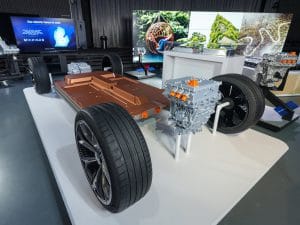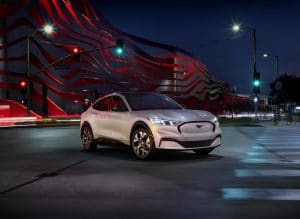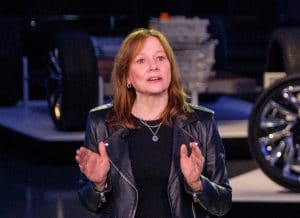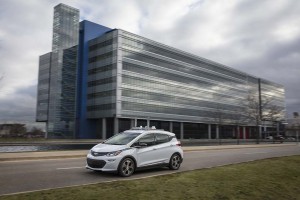
General Motors new Ultium battery technology is part of the foundation for its long-term commitment to electric vehicles.
Automakers have been touting their efforts to develop a viable electric vehicle, and among the Detroit-based makers, General Motors seems to be ahead of the curve with its already-on-the-road Chevy Bolt.
GM, Ford and to a lesser extent, Fiat Chrysler, have all put forth plans suggesting that the electric vehicle is the way of the future — of their futures. However, the future production plans of the automakers reveal that a mostly electric product line-up is much further away than many believe.
On March 4, GM Chairman and CEO Mary Barra outlined the company’s EV plans at event showing off its new Ultium battery technology. Barra declared that GM is “on a path to an all-electric future,” spending $20 billion by 2025 to develop both EVs and autonomous vehicles – with 20 all-electric models coming by 2023 and “many more” to follow.
(Learn about Chevy extended warranty.)
Last November, Ford introduced its long-awaited Mustang Mach-E electric SUV, revealing it plans to invest $11.5 billion in the technology between now and 2022. The company plans to build a variety EVs and plug-in hybrids.
Ford also plans to have a number of pure battery-electric vehicles, including a version of the next-generation F-150 pickup, its best-seller and, a large SUV, company officials confirmed during the Mach-E introduction.
There are expected to be several more that Chairman Bill Ford Jr. said he wasn’t ready to discuss, although he said “of course” when asked whether the second-largest Detroit automaker is giving serious thought to electrifying the more familiar coupe version of the Mustang, adding you, “Never say never.”
FCA has lagged the other Detroit automakers when it comes to electric vehicle development, only pushing it to the fore of its near-term goals in the last year. It’s widely assumed that one major benefit of the still-being-hammered-out merger with French automaker PSA is that it will accelerate Fiat Chrysler’s electric vehicle capabilities.
(GM reveals flexible EV platform, new “Ultium” batteries, plan to make EVs cost competitive.)
However, data from AutoForecast Solutions, an automotive forecasting
database and business solutions group, claims that U.S. automakers, GM and Ford in this case, will produced more than 5 million sport-utility vehicles and trucks in 2026, but only 320,000 electric vehicles — less than Tesla Inc. produced in 2019, according to a report by Reuters.
That total is about 5% of the total vehicle production in North America, Reuters points out. As GM and Ford point to a battery-electric future, these plans layout a horizon still dominated by gas- and diesel-powered vehicles.
“GM and Ford understand that buyers want more SUVs and trucks, but they’re also trying to play to Wall Street, which thinks the future is all about electric vehicles,” Sam Fiorani, vice president, global vehicle forecasting at AutoForecast told Reuters. “The Detroit automakers would love to get a little of that Tesla magic and money.”
Short of getting that magic, GM and Ford know how to get that money. They’ll pull from the playbook they’re currently using: selling more SUVs and pickups.

The Mustang Mach-E is the first step in Ford’s electrification plans, that the company will invest $11.5 billion toward.
According to data from AutoForecast Solutions, which was seen by Reuters, GM and Ford SUV production will exceed that of cars by more than eight to one in 2026. Additionally, 93% of those SUVs are expected to be gas-powered vehicles. The data has not previously been reported, Reuters noted.
(New Mustang Mach-E is first step in “electrification” for Ford.)
AutoForecast’s data is based on planning information provided to suppliers by the automakers, and is widely used across the industry. GM and Ford executives interviewed by Reuters did not dispute the accuracy of the data.


